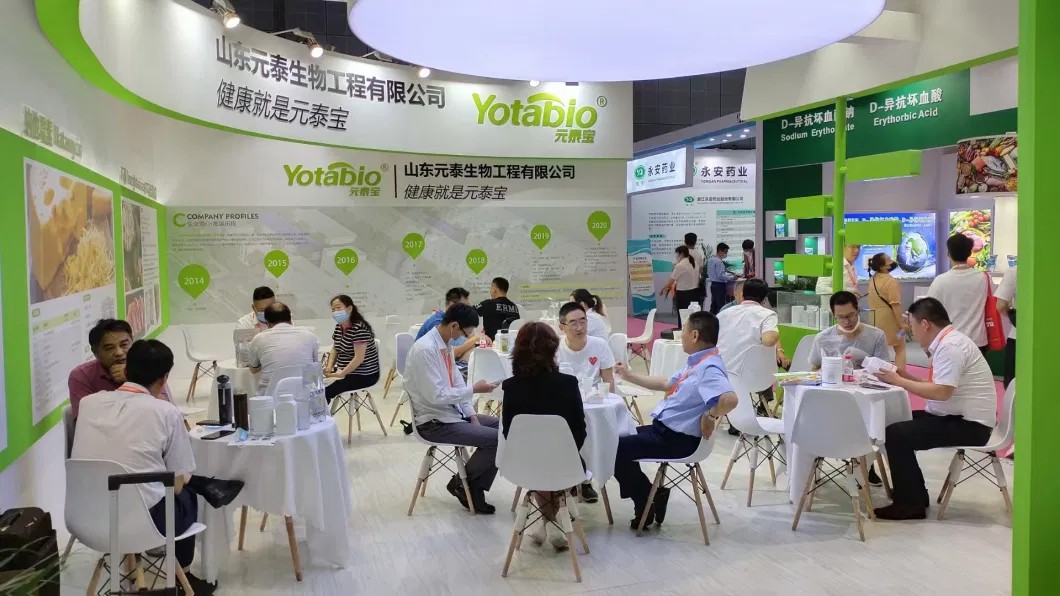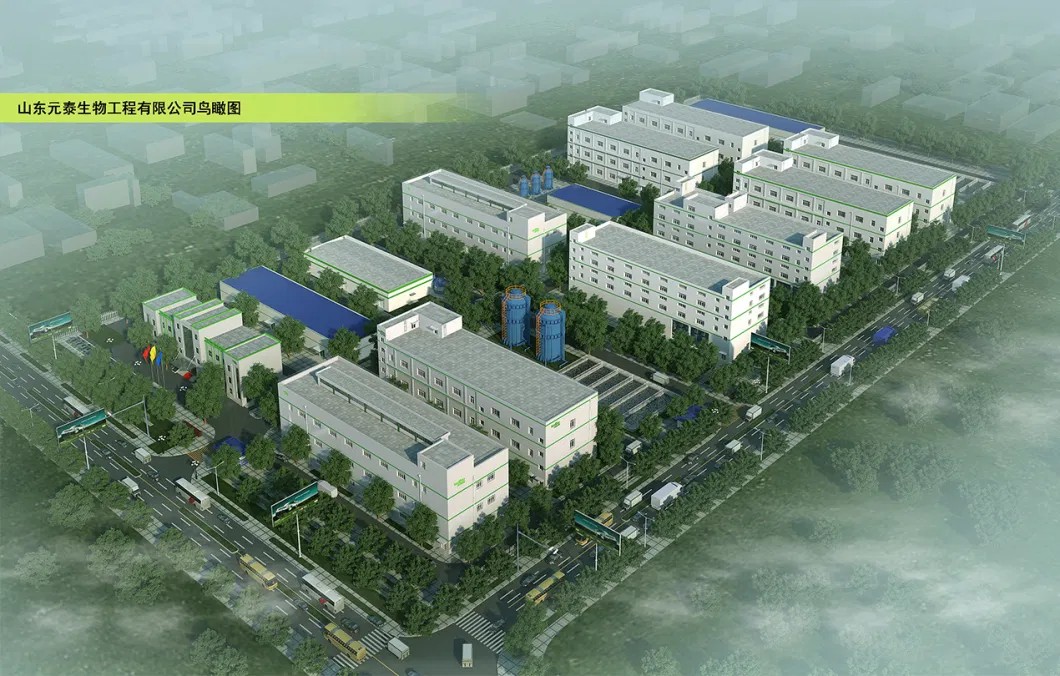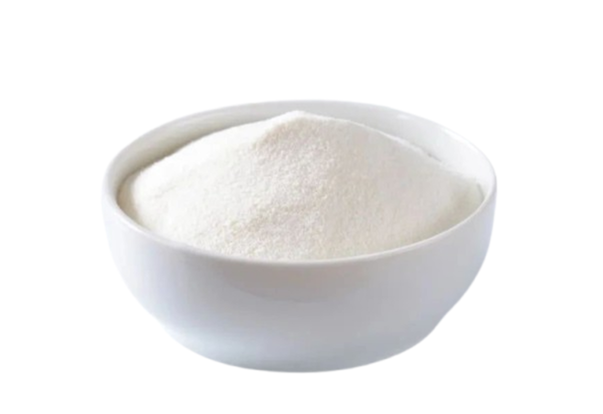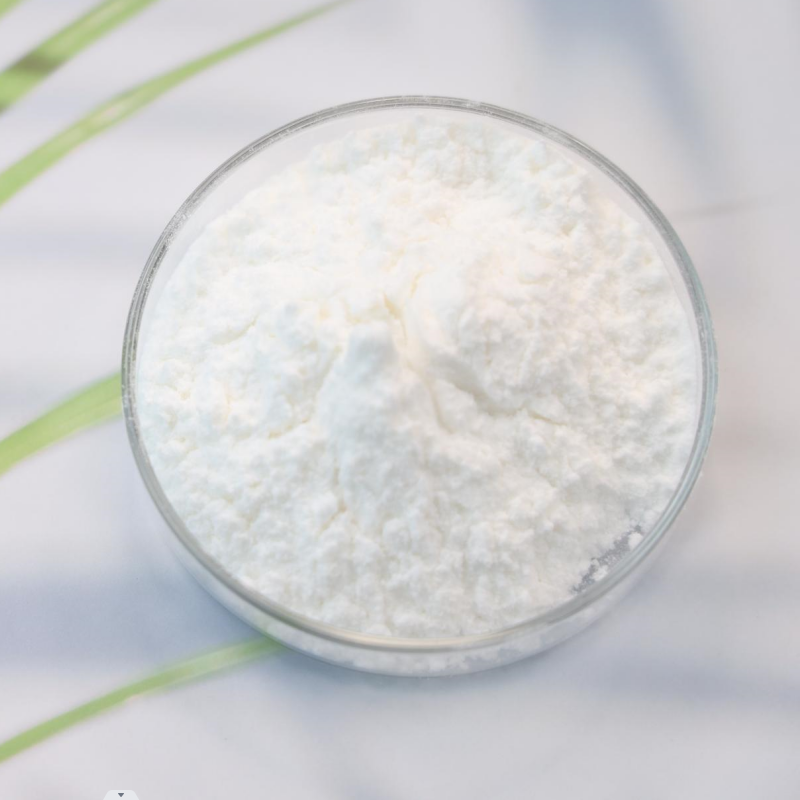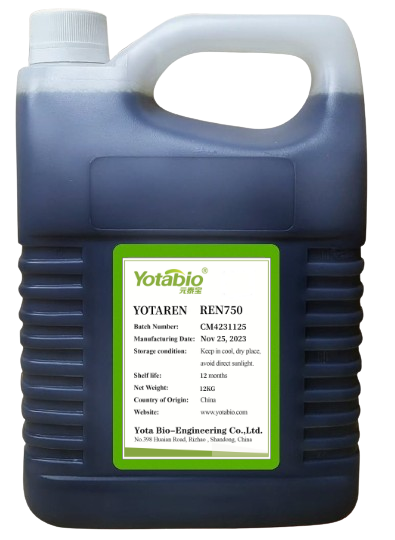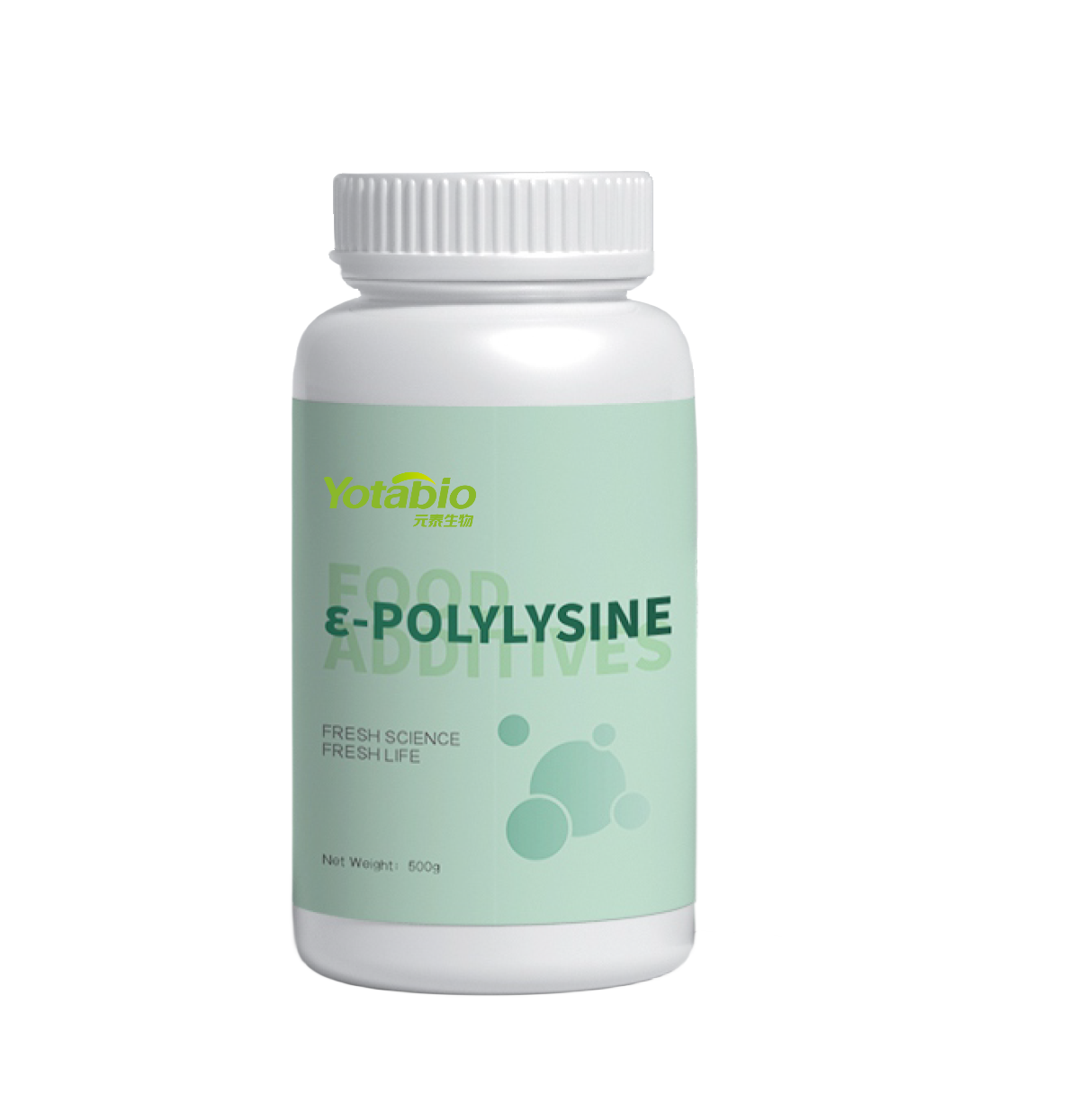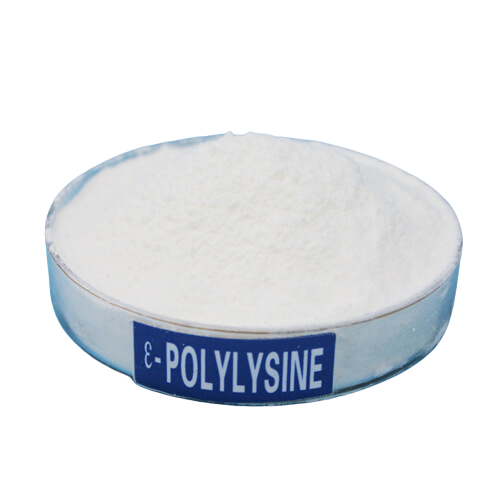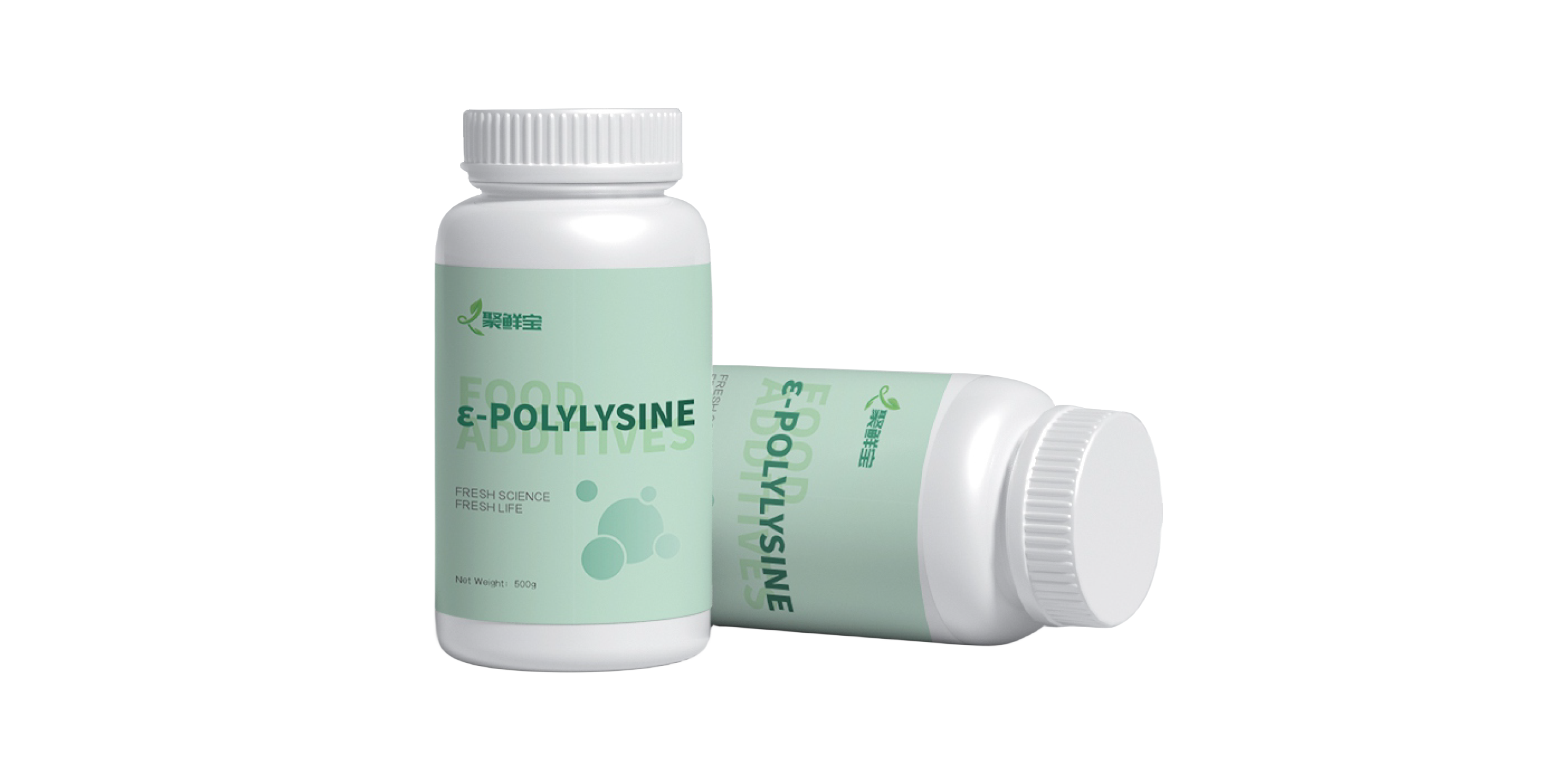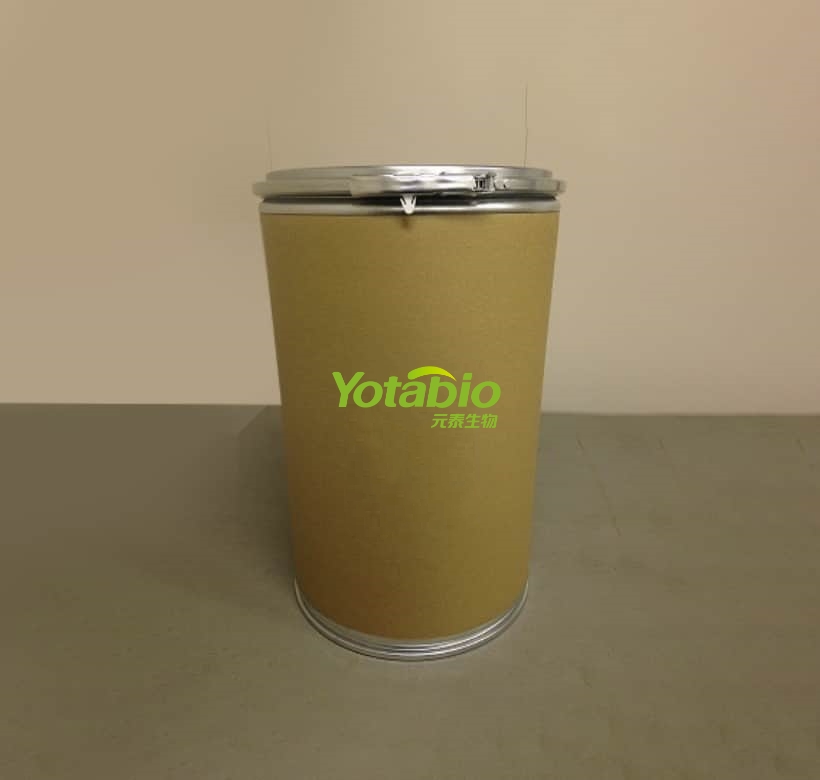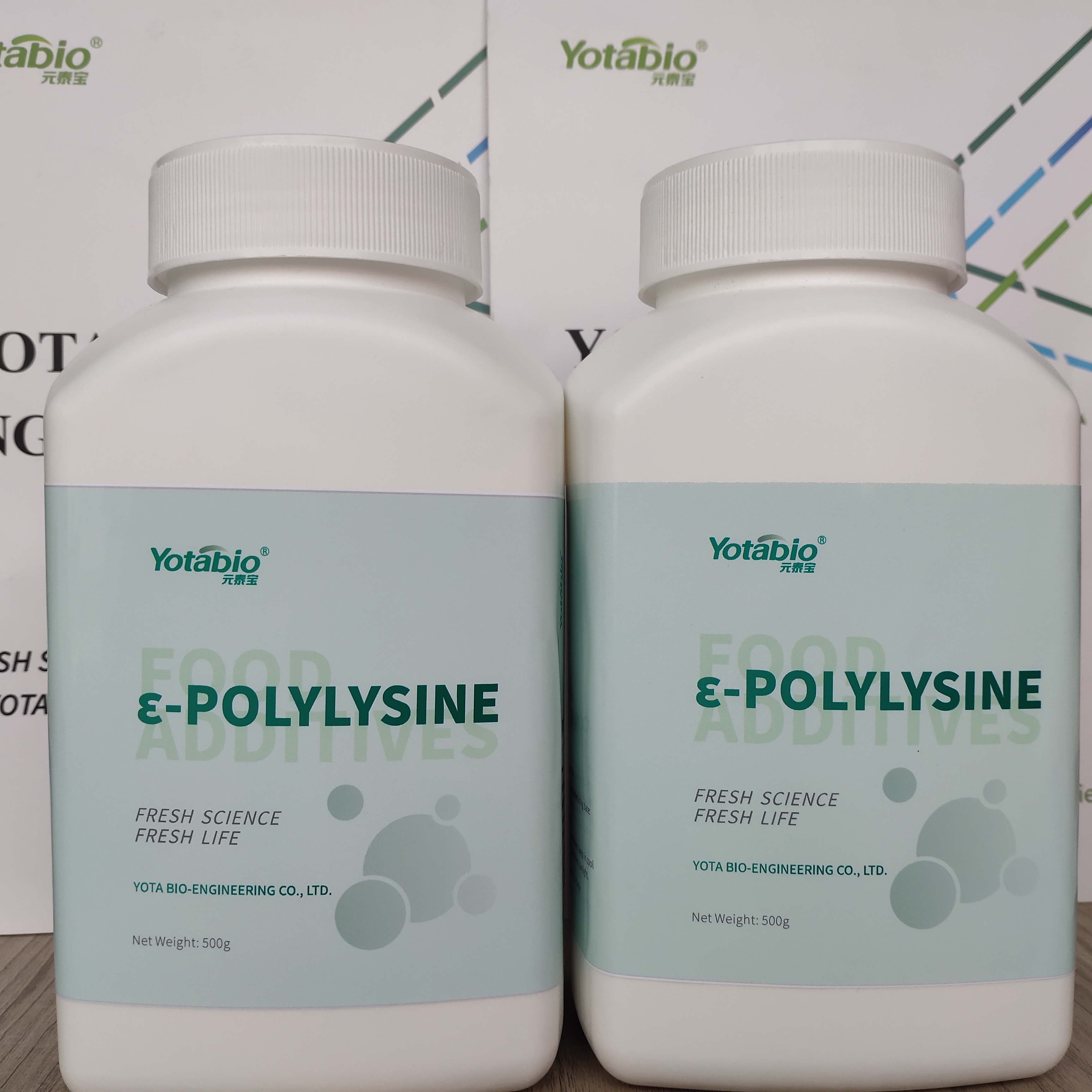
Contact me:
Basic Info.
Product Description
ε-polylysine Product Information
Description
ε -Polylysine (ε-poly-L-lysine) is produced by the fermentation of Streptomyces albulus. It has high antibacterial activity when its molecular weight is between 3600-4300, but loses activity when its molecular weight is less than 1300. Pale yellow powder, hygroscopic, almost odorless is an ideal natural antimicrobial to prolong the shelf life, with a high natural antimicrobial activity against a wide range of fungi, Gram-positive and Gram-negative bacteria, and their spores. ε -Polylysine is a homopolymer that consists of 25-35 L-lysine residues. It's produced by a fermentation process using Streptomyces albulus under aerobic conditions. Consumers become more health conscious, and there is an increasing demand for natural preservatives. ε -Polylysine is now gaining some attention for the food industry due to its unique properties including heat stability and excellent antimicrobial activity. ε-Polylysine is food grade and meets FAO/WHO specifications. It is certified as GRAS (Generally Recognized As Safe) by the US FDA with US GRAS No.: GRN000135. Currently, ε-Polylysine has approval as a food additive in China, Korea, Japan, USA and some more countries.
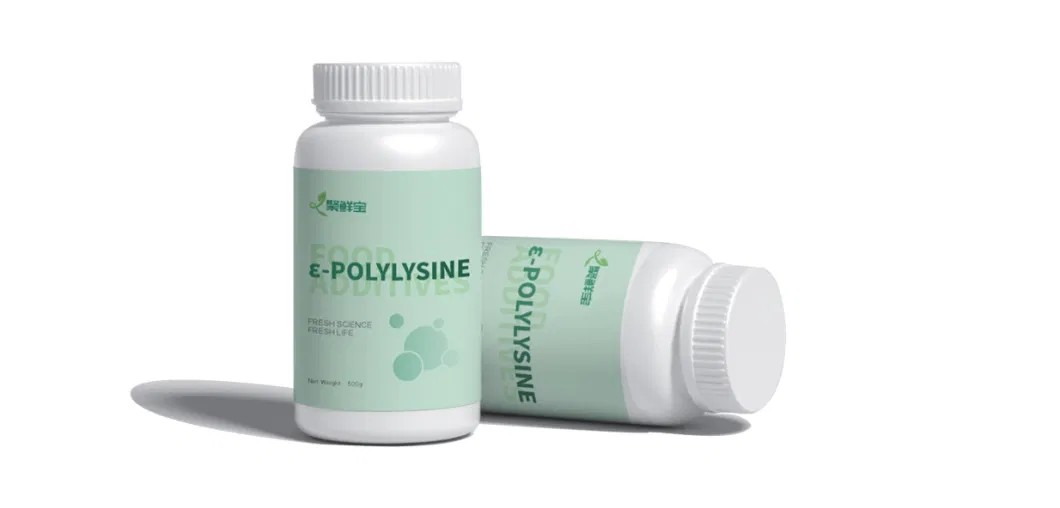
ε -Polylysine: ≥ 99%.
ε-polylysine Specifications
GMO information
According to regulations Ec No. 1829/2003 and 1830/2003. Microorganisms used for the production of this product are not genetically modified.
Storage conditions: Store unopened under 20°C in dry conditions, away from direct sunlight.
Expiry date: 2 years under storage conditions.
Purity and legal status: Nisin is a food grade and complies to FAO/WHO and EU food chemical codexes. complies with USFDA and classified GRAS status
Packaging: available in 500gram polyethylene bottles with integral, tamper-proof seals loaded in 10kg carton box, also 25kg drum available as requested.
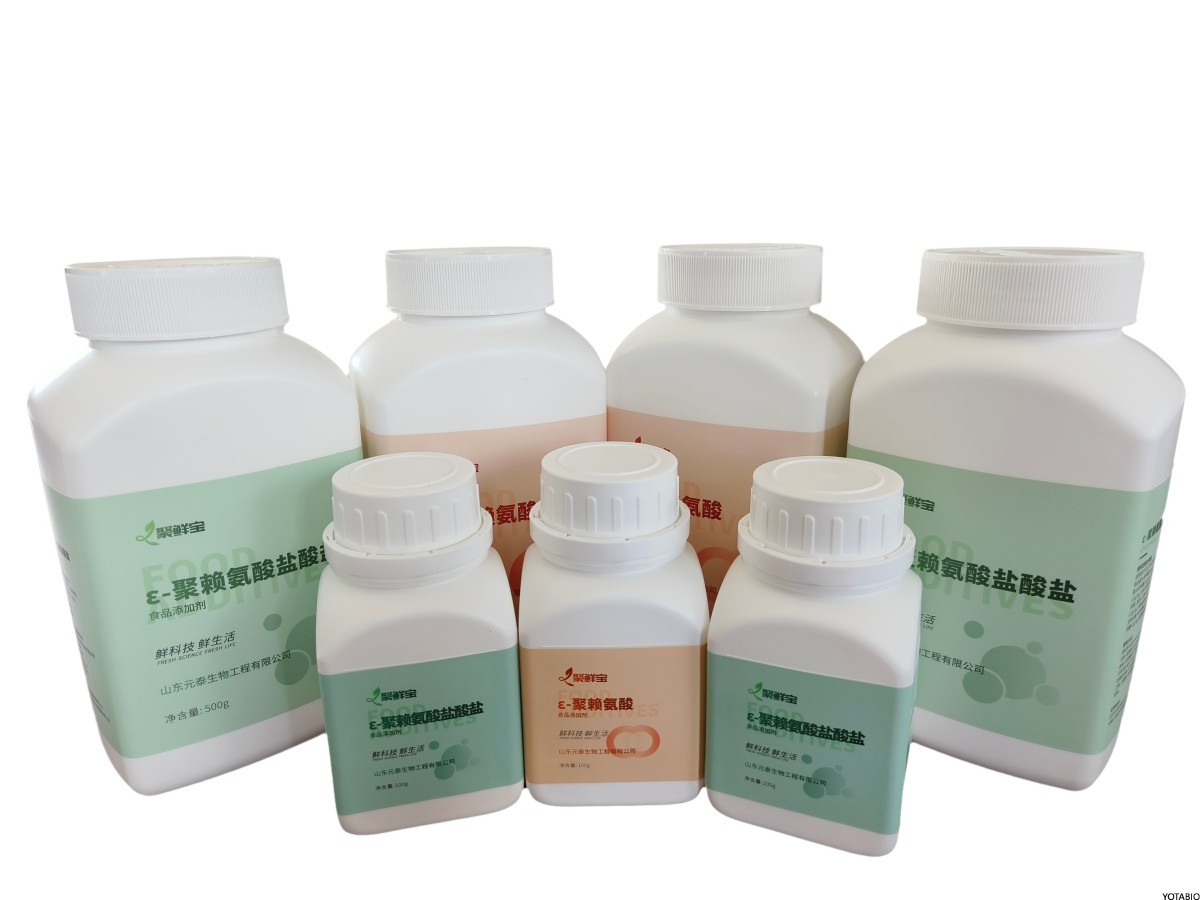
Minimum inhibitory concentration (MIC)
Gram-negative bacteria, yeast, moulds, viruses etc. It's been widely used in the food manufacturing. ε -Polylysine can be completely digested and absorbed by the human body and broken down into essential amino acids lysine without any side effect.
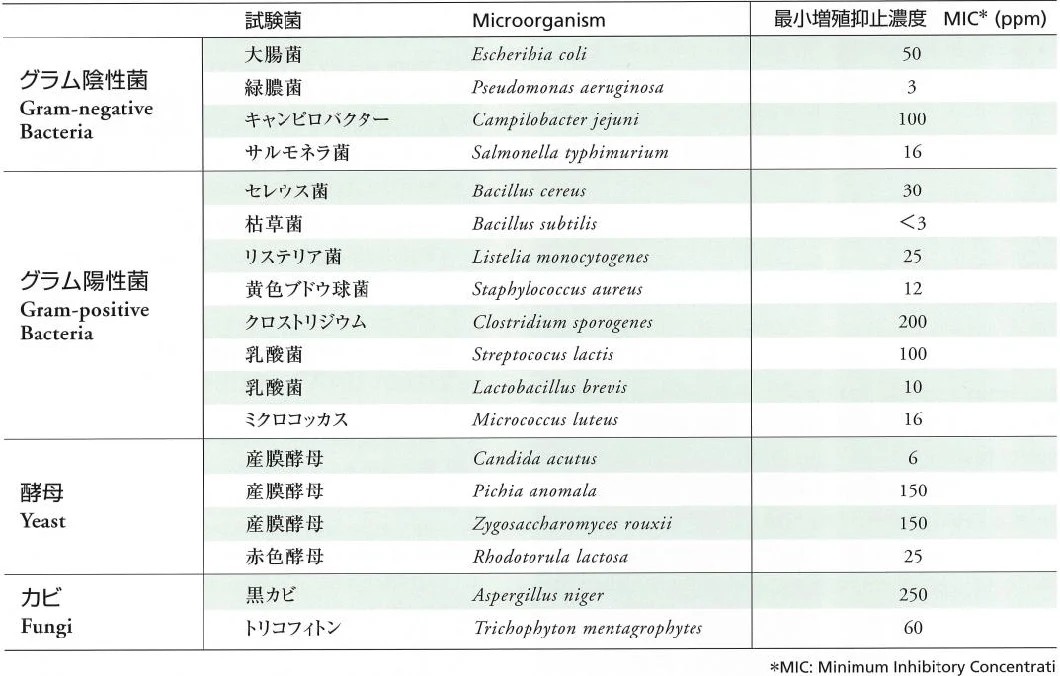
KEY BENEFITS OF ε-Polylysine
*Natural Bio - Preservative, product of Bacterial Fermentation.
*Broad Powerful Antibacterial Spectrum works against Gram- positive and Gram - negative Bacteria, Yeast & Moulds, Viruses and many other Micro-Organisms.
*GRAS for most food applications & Minimal effect on Taste and Odor.
*Excellent Synergistic Effect : (Strong Blends) As a Natural preservative, e-Polylysine can be used alone. In addition, it has good synergistic effects when blending with other food additives (NISIN, Natamycin, Vinegar, Alcohol, Glycine, Organic Acid, EDTA, Monoglycerides etc.). After blending, its bactericidal action will be greatly improved. (opportunities for cost averaging).
*Excellent Thermal Stability (Heat/Cold Stability) under high temperature (121˚C for 30min), e-polylysine does not decompose, so it is suitable for cooked food.
*Works well in Wide pH Range : Under the condition of pH 2-9, e-polylysine has strong bactericidal ability, it can make up for the deficiencies that other Preservatives have low activity in Neutral and Alkaline conditions.
*Long track record of product use and safety. (more than 20 years in Japan and Korea).
*High safety: the Acute Toxicity Test of e-Polylysine (LD50) is 5 gm/kg which is equivalent to the Toxicity of salt. After eating, it can be broken down into L-lysine, one of the essential Amino Acids for human health and can be absorbed by the human body, without any Toxic and Side Effects.
*Good water-solubility: e-polylysine is easily soluble in water, the maximum solubility is 500 gms/Lit. at least.
*Health Care Function : Studies have shown that e-polylysine can effectively inhibit enzyme activity and fat absorption which in turn reduce the Obesity.
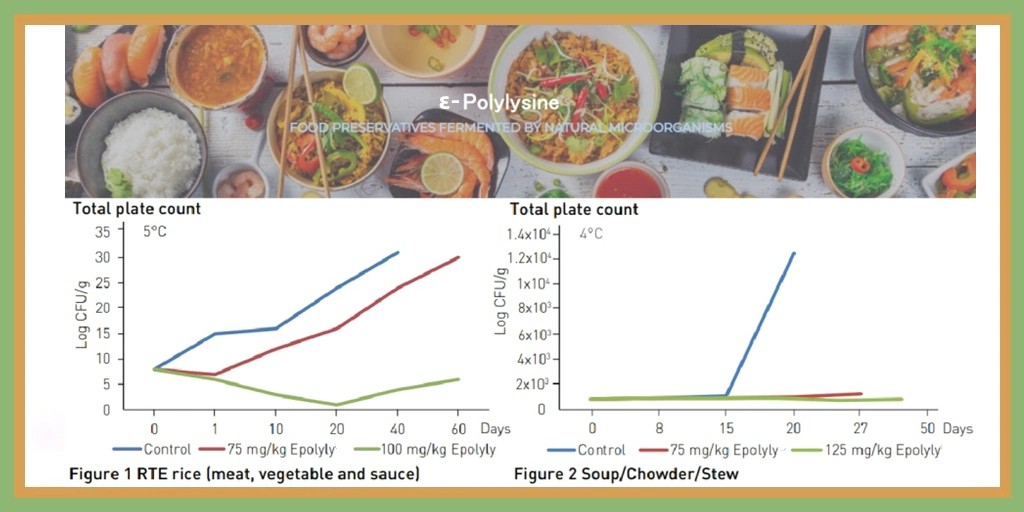
The main difference between polylysine and traditional preservatives
• No antibiotics in the composition. Product Clean Label (no code -E);
• Natural origin. Safety. not defined;
• Broad range of antimicrobial agents, especially Gram-negative and Gram-positive bacteria, including E. coli, Salmonella, yeasts, molds. ensure phagocytosis;
• Effective over a broad pH range (2-9);
• Efficient, pathogenic bacteria have no dependence on polylysine;
• 3-4 times longer shelf life (time depends on usage and processing quality);
• Due to the use of polylysine, the taste of the product is clean, free from off-flavors and odors.
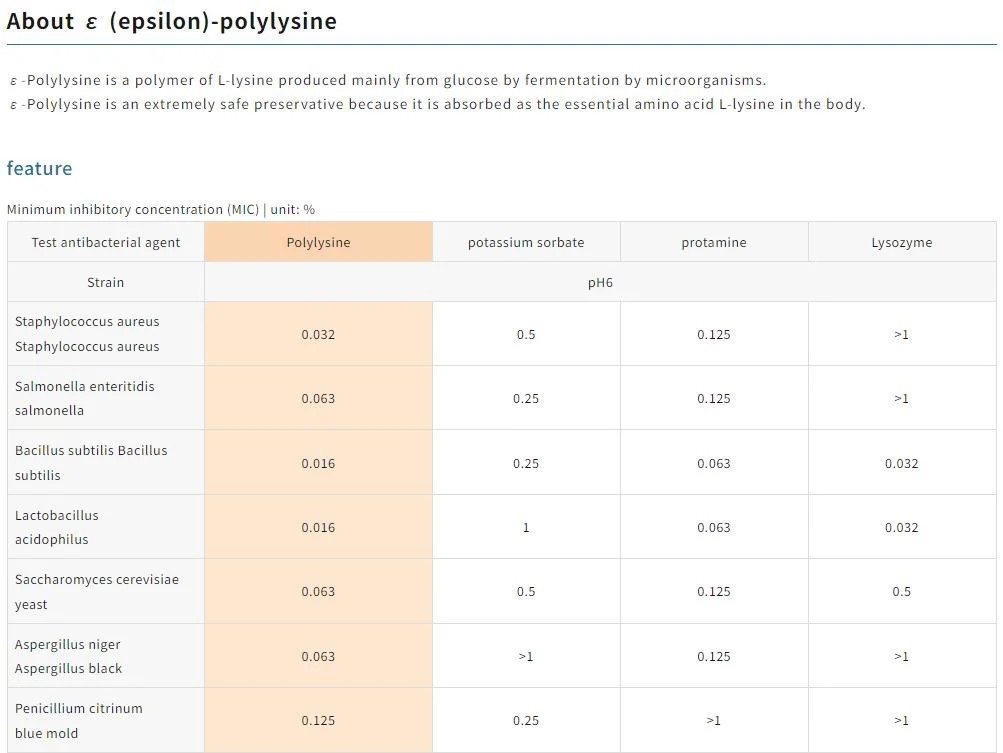
Application of Polylysine (ε-Polylysine)
Polylysine, also known as ε-Poly-L-lysine (EPL), is a natural antimicrobial compound produced by microbial fermentation. It has gained attention as a bio preservative due to its effectiveness in inhibiting the growth of various microorganisms. Here are some applications of polylysine as a bio preservative:
Food Preservation: Polylysine has been widely studied and applied in the food industry as a natural preservative. It exhibits strong antimicrobial activity against a broad spectrum of spoilage-causing bacteria, yeasts, and molds. It is particularly effective against Gram-positive bacteria, which are commonly associated with food spoilage. Polylysine can be used as a preservation agent in a variety of food products including meat, seafood, dairy products, sauces, dressings, bakery goods, and beverages.
Pharmaceutical and Cosmetics: Polylysine's antimicrobial properties make it useful in the preservation of pharmaceutical and cosmetic products. It can help prevent the growth of microorganisms that could cause product degradation or contamination. Polylysine is employed as a natural alternative to synthetic preservatives in various topical creams, lotions, ointments, and other personal care products.
Animal Feed: In the animal husbandry industry, polylysine is used as a feed preservative to prevent the growth of harmful bacteria and molds in animal feed. By inhibiting the growth of spoilage microorganisms, polylysine helps prolong the shelf life of the feed and maintain its nutritional quality.
Agricultural Applications: Polylysine has also shown potential as a bio preservative in agricultural settings. It can be used to protect crops and agricultural products from microbial contamination and deterioration. Polylysine-based formulations have been investigated for post-harvest treatments to extend the shelf life of fruits, vegetables, and other perishable agricultural commodities.
One of the advantages of polylysine as a bio preservative is its safety and natural origin. It is generally recognized as safe (GRAS) by regulatory authorities such as the U.S. Food and Drug Administration (FDA) and the European Food Safety Authority (EFSA). Polylysine is a sustainable and eco-friendly alternative to synthetic preservatives, contributing to the growing demand for natural and clean label products.
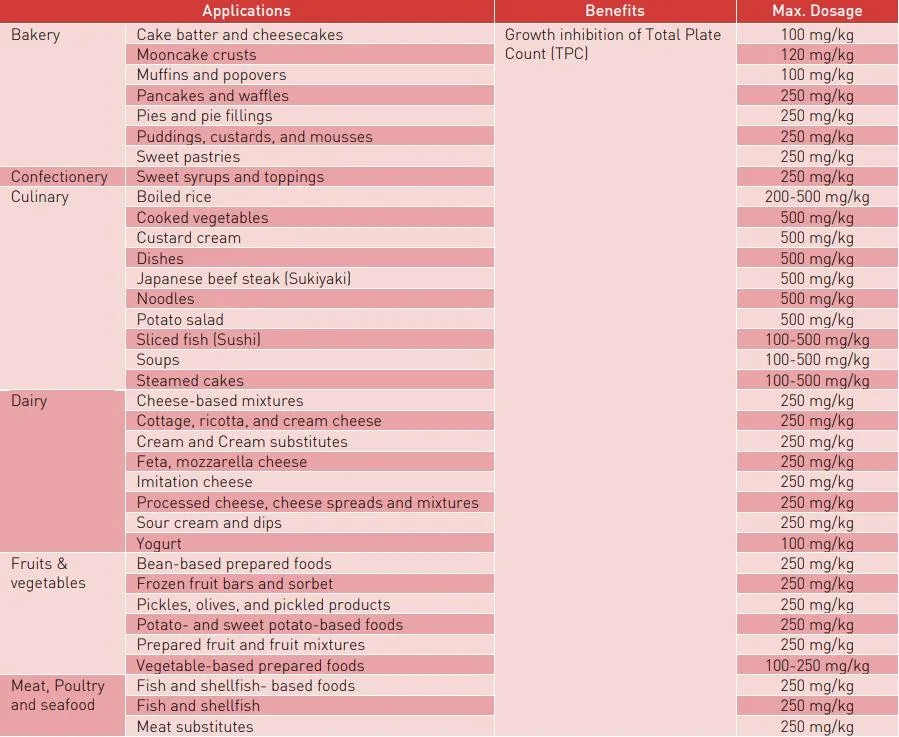
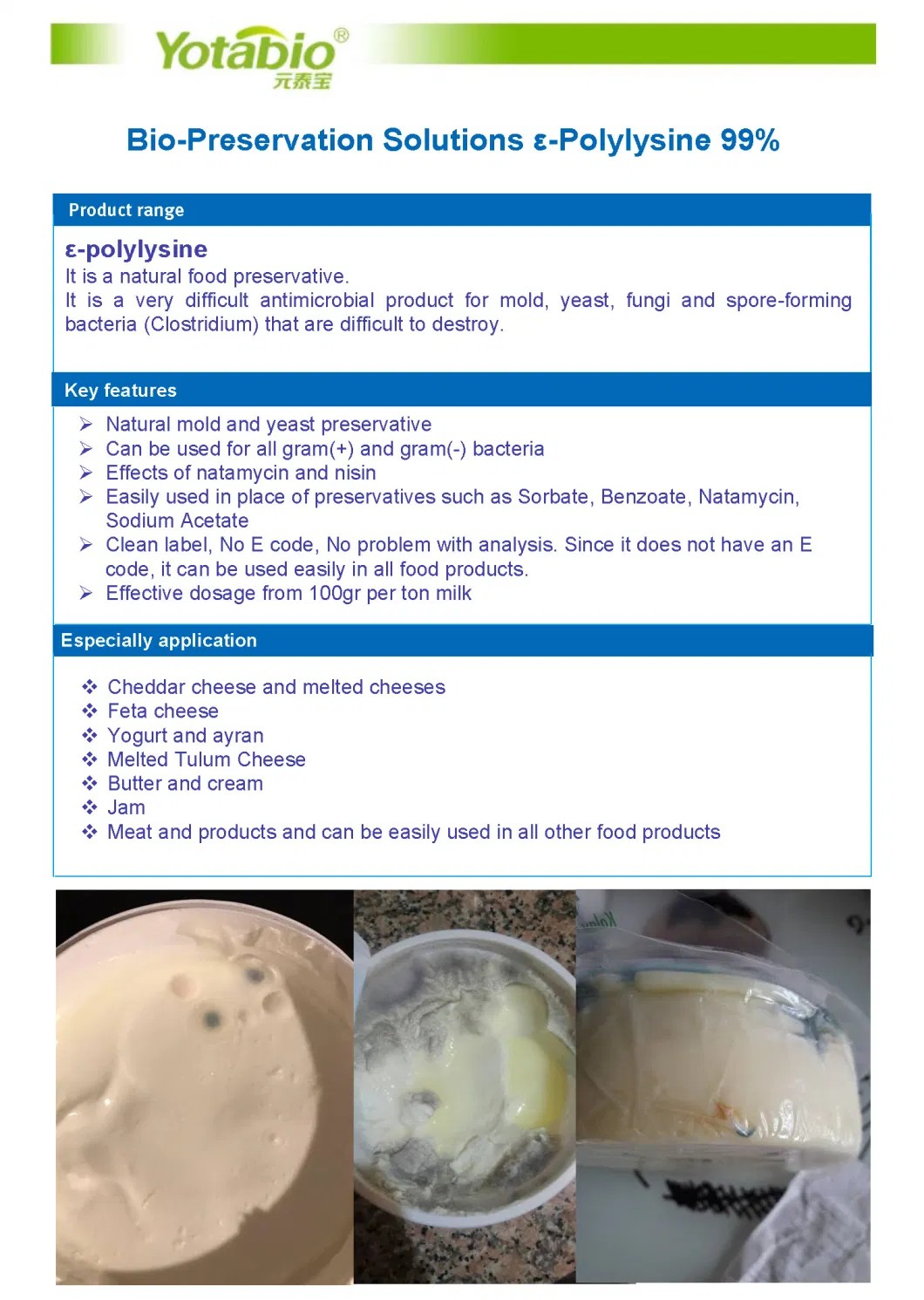
Enzymes and cultures play a key role in ensuring that dairy products have the best possible flavor and appearance, while staying fresh for longer. YOTABIO can help you plan your food ingredient purchases through natural solutions. We focus on the production of food preservatives and enzymes.
Our production base now covers about 38,000 square metres and there are 150 staff members working to produce high quality bio-food additives such as Nisin, Natamycin, Polylysine and Transglutaminase (TG), Lysozyme, Rennet, Chymosin, Lactase and Lipse for the dairy industry since 2016, and we also supply vegan food ingredients such as Methylcellulose. Thanks to our diligent workers, YOTABIO is able to provide stable with quality products to our customers all over the world.
YOTABIO is committed to becoming a leading manufacturer of bio-food additives in the food industry in China, by having a strong innovation in the R&D area, the well-designed & established manufacturing facilities and a responsive & creative customer support system.
Deeply rooted in YOTABIO's corporate culture, innovation and expertise are at the core of new developments. YOTABIO is constantly innovating and improving its range of food ingredients.
The innovation team at YOTABIO brings together the necessary energy, scientific and technical skills to serve a common goal: to continuously provide the best products and service to our customers.
Using bio-based materials and state-of-the-art biotechnology, we can help you meet the various consumer demands for food preservation and processing. We can also help you reduce costs and improve food safety by maintaining freshness & quality for the intended shelf life of the food.
